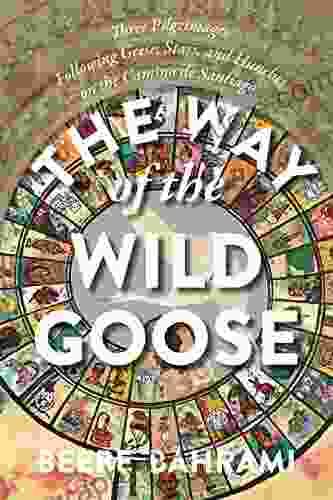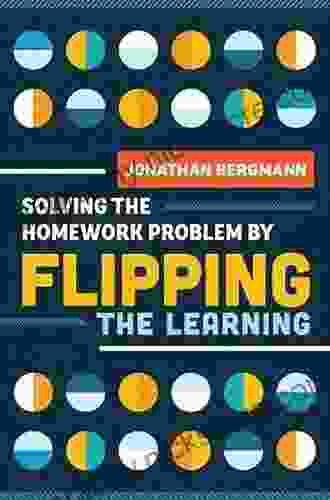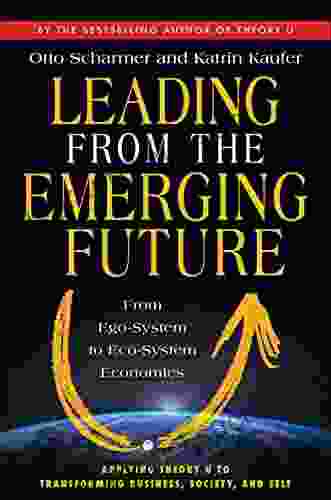From Ego System to Eco System Economies: A New Era of Sustainability and Resilience

The world is changing at an unprecedented rate. The rise of globalization, the internet, and social media has connected people and businesses like never before. This has led to a number of challenges, but it has also created new opportunities for collaboration and innovation.
4.7 out of 5
| Language | : | English |
| File size | : | 4386 KB |
| Text-to-Speech | : | Enabled |
| Screen Reader | : | Supported |
| Enhanced typesetting | : | Enabled |
| X-Ray | : | Enabled |
| Word Wise | : | Enabled |
| Lending | : | Enabled |
| Print length | : | 303 pages |
One of the most important challenges facing the world today is the need to create more sustainable and resilient economies. The traditional ego-driven systems that have dominated the global economy for centuries are no longer sustainable. These systems are based on the idea that individuals and businesses should compete with each other for resources, and that the only way to succeed is to accumulate wealth and power.
Ego-system economies are characterized by a number of negative consequences, including:
- Environmental degradation: Ego-system economies often lead to environmental degradation, as businesses seek to maximize profits at the expense of the environment.
- Social inequality: Ego-system economies often lead to social inequality, as the wealthy and powerful accumulate more and more resources, while the poor and marginalized are left behind.
- Financial instability: Ego-system economies are often prone to financial instability, as businesses and individuals take on too much debt in order to compete for resources.
In contrast to ego-system economies, eco-system economies are based on the idea that individuals and businesses should cooperate with each other to create a sustainable and resilient economy. Eco-system economies are characterized by a number of positive attributes, including:
- Environmental sustainability: Eco-system economies prioritize environmental sustainability, as businesses and individuals work together to reduce their impact on the environment.
- Social equality: Eco-system economies promote social equality, as businesses and individuals work together to create a more just and equitable society.
- Financial stability: Eco-system economies are more financially stable than ego-system economies, as businesses and individuals cooperate to reduce risk and create a more resilient economy.
The transition from ego-system to eco-system economies is a complex and challenging one, but it is essential for the future of our planet. By working together, we can create a more sustainable, resilient, and just economy for all.
Key Characteristics of Ego-System Economies
Ego-system economies are characterized by a number of key features, including:
- Competition: Ego-system economies are based on the idea that individuals and businesses should compete with each other for resources. This competition can lead to a number of negative consequences, including environmental degradation, social inequality, and financial instability.
- Individualism: Ego-system economies prioritize individualism over collectivism. This can lead to a lack of cooperation and a sense of isolation.
- Short-term thinking: Ego-system economies often focus on short-term profits at the expense of long-term sustainability.
- Centralization: Ego-system economies are often centralized, with power concentrated in the hands of a few individuals or institutions.
Key Characteristics of Eco-System Economies
Eco-system economies are characterized by a number of key features, including:
- Cooperation: Eco-system economies are based on the idea that individuals and businesses should cooperate with each other to create a sustainable and resilient economy. This cooperation can lead to a number of positive outcomes, including environmental sustainability, social equality, and financial stability.
- Collectivism: Eco-system economies prioritize collectivism over individualism. This can lead to a greater sense of community and cooperation.
- Long-term thinking: Eco-system economies focus on long-term sustainability over short-term profits. This can lead to more sustainable and resilient businesses and economies.
- Decentralization: Eco-system economies are often decentralized, with power distributed more evenly throughout the system.
Challenges and Opportunities of the Transition to Eco-System Economies
The transition from ego-system to eco-system economies is a complex and challenging one. There are a number of barriers that must be overcome, including:
- vested interests: There are a number of vested interests that benefit from the current ego-system economy. These interests will resist change and may try to block the transition to eco-system economies.
- Lack of awareness: Many people are not aware of the problems with ego-system economies or the benefits of eco-system economies. This lack of awareness can make it difficult to build support for the transition.
- Complexity: The transition to eco-system economies is a complex one. It will require changes in the way that businesses operate, the way that governments regulate the economy, and the way that individuals live their lives.
Despite these challenges, there are also a number of opportunities that the transition to eco-system economies presents. These opportunities include:
- Innovation: The transition to eco-system economies will require new and innovative solutions to the challenges we face. This can lead to the development of new technologies, new business models, and new ways of living.
- Collaboration: The transition to eco-system economies will require cooperation and collaboration between businesses, governments, and individuals. This can lead to a greater sense of community and a more just and equitable society.
- Resilience: Eco-system economies are more resilient than ego-system economies. This resilience will be essential in the face of the challenges that we face in the 21st century, such as climate change, resource scarcity, and population growth.
Implications for Businesses and Society
The transition to eco-system economies has a number of implications for businesses and society. For businesses, the transition will require a shift from a focus on short-term profits to a focus on long-term sustainability. Businesses will also need to become more cooperative and collaborative with each other and with their stakeholders.
For society, the transition to eco-system economies will require a shift from a focus on individualism to a focus on collectivism. Individuals will also need to become more aware of the problems with ego-system economies and the benefits of eco-system economies.
The transition to eco-system economies is a challenging one, but it is essential for the future of our planet. By working together, we can create a more sustainable, resilient, and just economy for all.
4.7 out of 5
| Language | : | English |
| File size | : | 4386 KB |
| Text-to-Speech | : | Enabled |
| Screen Reader | : | Supported |
| Enhanced typesetting | : | Enabled |
| X-Ray | : | Enabled |
| Word Wise | : | Enabled |
| Lending | : | Enabled |
| Print length | : | 303 pages |
Do you want to contribute by writing guest posts on this blog?
Please contact us and send us a resume of previous articles that you have written.
 Fiction
Fiction Non Fiction
Non Fiction Romance
Romance Mystery
Mystery Thriller
Thriller SciFi
SciFi Fantasy
Fantasy Horror
Horror Biography
Biography Selfhelp
Selfhelp Business
Business History
History Classics
Classics Poetry
Poetry Childrens
Childrens Young Adult
Young Adult Educational
Educational Cooking
Cooking Travel
Travel Lifestyle
Lifestyle Spirituality
Spirituality Health
Health Fitness
Fitness Technology
Technology Science
Science Arts
Arts Crafts
Crafts DIY
DIY Gardening
Gardening Petcare
Petcare John Sandford
John Sandford Rachel Smith
Rachel Smith Yuval Noah Harari
Yuval Noah Harari Vanessa Ogden Moss
Vanessa Ogden Moss Print Replica Kindle Edition
Print Replica Kindle Edition S K Gupta
S K Gupta Jake Anderson
Jake Anderson Craig Martin
Craig Martin Ellen Notbohm
Ellen Notbohm Jane Butel
Jane Butel Pearson Education
Pearson Education Chris Bennett
Chris Bennett Jeremy Sweet
Jeremy Sweet Melissa Haag
Melissa Haag Sharon Dukett
Sharon Dukett Peter Wacht
Peter Wacht Lock Gareth
Lock Gareth Cynthia Levinson
Cynthia Levinson Martin Dugard
Martin Dugard Joshua Hammer
Joshua Hammer Trish Kuffner
Trish Kuffner Diane Yancey
Diane Yancey Jeff Alt
Jeff Alt Jaymin Eve
Jaymin Eve Nancy E Willard
Nancy E Willard Arny Alberts
Arny Alberts James Koeper
James Koeper Mina Lebitz
Mina Lebitz Barry Friedman
Barry Friedman Stephanie Fritz
Stephanie Fritz Daniel P Huerta
Daniel P Huerta Conor Nolan
Conor Nolan Shmuel Peerless
Shmuel Peerless Edward Lee
Edward Lee R L Medina
R L Medina Bruce Pascoe
Bruce Pascoe David Starbuck Smith
David Starbuck Smith Marc Loy
Marc Loy Jack Newman
Jack Newman John Aldridge
John Aldridge Malcolm Hebron
Malcolm Hebron Paul Van Lierop
Paul Van Lierop James Duthie
James Duthie John Lister Kaye
John Lister Kaye Clayton King
Clayton King David Aretha
David Aretha Meghan L Marsac
Meghan L Marsac W Hamilton Gibson
W Hamilton Gibson Scott Mactavish
Scott Mactavish Shayla Black
Shayla Black Geert Hofstede
Geert Hofstede Basudeb Bhatta
Basudeb Bhatta Leslie Stager
Leslie Stager Ray Comfort
Ray Comfort Tami Anastasia
Tami Anastasia Tom Miller
Tom Miller Thomas Bulfinch
Thomas Bulfinch Linnea Dunne
Linnea Dunne David Thomas
David Thomas Emma Brockes
Emma Brockes Otto Scharmer
Otto Scharmer Breanna Hayse
Breanna Hayse Beebe Bahrami
Beebe Bahrami Hunbatz Men
Hunbatz Men Leon Mccarron
Leon Mccarron James Kilgo
James Kilgo Jessica F Shumway
Jessica F Shumway Bob Holtzman
Bob Holtzman Cara Koscinski
Cara Koscinski Gerald Beaudry
Gerald Beaudry Ken Xiao
Ken Xiao Sean Mcindoe
Sean Mcindoe Julie L Spencer
Julie L Spencer Rhonda Belle
Rhonda Belle Lew Freedman
Lew Freedman John Kimantas
John Kimantas Barry Burd
Barry Burd Gordon Witteveen
Gordon Witteveen Grey Owl
Grey Owl Ryan Higa
Ryan Higa Maha Alkurdi
Maha Alkurdi Lynn Mann
Lynn Mann Brian Gilbert
Brian Gilbert Donald Frias
Donald Frias Catherine M Cameron
Catherine M Cameron Richard Chun
Richard Chun Kara Tippetts
Kara Tippetts Daniel M Koretz
Daniel M Koretz Nina Manning
Nina Manning Sam Harris
Sam Harris Sam Cowen
Sam Cowen Chris Cage
Chris Cage Bernard Marr
Bernard Marr St Louis Post Dispatch
St Louis Post Dispatch Elizabeth George Speare
Elizabeth George Speare Vanessa Garbin
Vanessa Garbin Mike Commito
Mike Commito Richard Weissbourd
Richard Weissbourd Ron Avery
Ron Avery Eddie Merrins
Eddie Merrins Rowan Jacobsen
Rowan Jacobsen Rebecca Rupp
Rebecca Rupp Mick Conefrey
Mick Conefrey Ben Collins
Ben Collins Linda Carroll
Linda Carroll Bonnie Tsui
Bonnie Tsui Emily Chappell
Emily Chappell Sam Nadler
Sam Nadler Linda Welters
Linda Welters Master Gamer
Master Gamer Mackenzi Lee
Mackenzi Lee V B Alekseev
V B Alekseev Charlie Shamp
Charlie Shamp Dr Michael P Masters
Dr Michael P Masters Stefan Ecks
Stefan Ecks Chadd Vanzanten
Chadd Vanzanten Tara Brach
Tara Brach Harvey Wittenberg
Harvey Wittenberg Eugene V Resnick
Eugene V Resnick Gabriyell Sarom
Gabriyell Sarom Charlotte Browne
Charlotte Browne Jesse Liberty
Jesse Liberty Spencer Wells
Spencer Wells S E Hinton
S E Hinton Randy Baker
Randy Baker Dan R Lynch
Dan R Lynch Jayanti Tambe
Jayanti Tambe George Macdonald
George Macdonald Bill Mckibben
Bill Mckibben Kam Knight
Kam Knight Dr Craig Malkin
Dr Craig Malkin Nicholas Sparks
Nicholas Sparks Brian Switek
Brian Switek Chiara Sparks
Chiara Sparks John Garrity
John Garrity Barry Rabkin
Barry Rabkin Ellen Lewin
Ellen Lewin Dustin Hansen
Dustin Hansen Eric Franklin
Eric Franklin Graham R Gibbs
Graham R Gibbs Bridget Flynn Walker Phd
Bridget Flynn Walker Phd Visual Arts
Visual Arts Macauley Lord
Macauley Lord Benita Bensch
Benita Bensch Barry Glassner
Barry Glassner J C Cervantes
J C Cervantes Barbara Ann Kipfer
Barbara Ann Kipfer Barbara Illowsk
Barbara Illowsk Steve Burrows
Steve Burrows Graham Farmelo
Graham Farmelo Joseph Schmuller
Joseph Schmuller Sport Hour
Sport Hour Steven Rinella
Steven Rinella Suzanne Wylde
Suzanne Wylde Kate Williams
Kate Williams Mark Mayfield
Mark Mayfield Diane Musho Hamilton
Diane Musho Hamilton Sampson Davis
Sampson Davis Arnold G Nelson
Arnold G Nelson Alexandra Andrews
Alexandra Andrews Ron Lemaster
Ron Lemaster David Abram
David Abram Lily Collins
Lily Collins Sara Shepard
Sara Shepard Pavla Kesslerova
Pavla Kesslerova Elizabeth Lockwood
Elizabeth Lockwood Pat Shipman
Pat Shipman Basu Shanker
Basu Shanker Babu The Panda
Babu The Panda Rachel Dash
Rachel Dash Wayne B Chandler
Wayne B Chandler Sergei Urban
Sergei Urban James C Radcliffe
James C Radcliffe Monica Hesse
Monica Hesse Mark Young
Mark Young Rob Hutchings
Rob Hutchings Christopher Taylor Ma Lmft
Christopher Taylor Ma Lmft Howard Zinn
Howard Zinn Frederick Douglass Opie
Frederick Douglass Opie William Wasserman
William Wasserman Kit Yates
Kit Yates James Syhabout
James Syhabout Jennifer Traig
Jennifer Traig Jack Andraka
Jack Andraka Dan Golding
Dan Golding Scott Westerfeld
Scott Westerfeld Richard H Immerman
Richard H Immerman Jane Hardwicke Collings
Jane Hardwicke Collings Charlotte Booth
Charlotte Booth Jamie Margolin
Jamie Margolin Prince Asare
Prince Asare Matt Taddy
Matt Taddy Nick Neely
Nick Neely Danny Staple
Danny Staple Margaret Owen
Margaret Owen Daniel T Willingham
Daniel T Willingham James Duggan
James Duggan Jennifer Pharr Davis
Jennifer Pharr Davis Peter K Tyson
Peter K Tyson Mark H Newman
Mark H Newman Chuck Missler
Chuck Missler Craig Lambert
Craig Lambert Leah Cullis
Leah Cullis Dustin Salomon
Dustin Salomon Robert A Baruch Bush
Robert A Baruch Bush Khurshed Batliwala
Khurshed Batliwala Eric Engle
Eric Engle Bryan Peterson
Bryan Peterson Nick Bollettieri
Nick Bollettieri Nichole Carpenter
Nichole Carpenter Julian I Graubart
Julian I Graubart Mike High
Mike High Eric Leiser
Eric Leiser John H Mcwhorter
John H Mcwhorter Eliza Reid
Eliza Reid Barbara Taylor
Barbara Taylor Barbara Russell
Barbara Russell Chris Eberhart
Chris Eberhart Molly E Lee
Molly E Lee Dr Faith G Harper
Dr Faith G Harper Gay Robins
Gay Robins David Jamieson Bolder
David Jamieson Bolder Mike Swedenberg
Mike Swedenberg Richard Meadows
Richard Meadows Ernie Morton
Ernie Morton Victor Seow
Victor Seow Julie Buxbaum
Julie Buxbaum Samantha Fitts
Samantha Fitts Martin Sternstein
Martin Sternstein Karen Bush
Karen Bush Barzin Pakandam
Barzin Pakandam Guy P Harrison
Guy P Harrison Crystal Duffy
Crystal Duffy Scott Malthouse
Scott Malthouse Smart Reads
Smart Reads Michael Wood
Michael Wood Ralph Galeano
Ralph Galeano Monta Z Briant
Monta Z Briant Colleen Alexander Roberts
Colleen Alexander Roberts Jeff Belanger
Jeff Belanger Mary A Fristad
Mary A Fristad Joanne Glenn
Joanne Glenn Jutta Schickore
Jutta Schickore Tim Ingold
Tim Ingold Achille Rubini
Achille Rubini Farley Mowat
Farley Mowat Catherine J Allen
Catherine J Allen Cary J Griffith
Cary J Griffith Kenton Kroker
Kenton Kroker Ascencia
Ascencia Jeffrey Jensen Arnett
Jeffrey Jensen Arnett Buddy Levy
Buddy Levy Hongyu Guo
Hongyu Guo Sam Kean
Sam Kean Jean Smith
Jean Smith Mark Twain
Mark Twain David A Bogart
David A Bogart Peter Martin
Peter Martin Richard J Dewhurst
Richard J Dewhurst Ryan A Pedigo
Ryan A Pedigo Steven Bell
Steven Bell Titus M Kennedy
Titus M Kennedy Jenny Chandler
Jenny Chandler Cheryl Erwin
Cheryl Erwin Helen Fisher
Helen Fisher Dave Karczynski
Dave Karczynski Daniel S Lobel Phd
Daniel S Lobel Phd Marco Grandis
Marco Grandis Temple West
Temple West Barbara Neiman
Barbara Neiman Patrick Sweeney
Patrick Sweeney Elliott Vandruff
Elliott Vandruff Denton Salle
Denton Salle J Bruce Brackenridge
J Bruce Brackenridge Becca Anderson
Becca Anderson Stephen K Sanderson
Stephen K Sanderson Percy Boomer
Percy Boomer Lawrence Baldassaro
Lawrence Baldassaro Justin Sirois
Justin Sirois Holger Schutkowski
Holger Schutkowski Tim Marshall
Tim Marshall Barbara Gastel
Barbara Gastel Oliver T Spedding
Oliver T Spedding Hill Gates
Hill Gates Mike Stanton
Mike Stanton Robert Ardrey
Robert Ardrey Steve Biddulph
Steve Biddulph Leonard M Adkins
Leonard M Adkins Kindle Edition
Kindle Edition Susan Scott
Susan Scott Emma Walker
Emma Walker W Scott Elliot
W Scott Elliot Joseph Epes Brown
Joseph Epes Brown Kate Darling
Kate Darling Siddhartha Rao
Siddhartha Rao Susan Nance
Susan Nance Fabien Clavel
Fabien Clavel Janna Levin
Janna Levin Stephen J Bavolek
Stephen J Bavolek Christopher L Heuertz
Christopher L Heuertz Jade Barrett
Jade Barrett Gordon H Chang
Gordon H Chang Stan Tekiela
Stan Tekiela Michael Palin
Michael Palin Mark Kurlansky
Mark Kurlansky John Henry Phillips
John Henry Phillips John C Norcross
John C Norcross Rob Pope
Rob Pope Mykel Hawke
Mykel Hawke John G Robertson
John G Robertson John Quick
John Quick Brad Burns
Brad Burns Catherine Shainberg
Catherine Shainberg Scott Reed
Scott Reed Suzanne Leonhard
Suzanne Leonhard Noah Brown
Noah Brown Ben Sedley
Ben Sedley Scarlett Thomas
Scarlett Thomas Blair Braverman
Blair Braverman Valerie Pollmann R
Valerie Pollmann R Philip Maffetone
Philip Maffetone Rebecca Solnit
Rebecca Solnit Cindy Post Senning
Cindy Post Senning Debra Kilby
Debra Kilby Kenneth Wilgus Phd
Kenneth Wilgus Phd Roy Porter
Roy Porter T C Edge
T C Edge Deanna Roy
Deanna Roy Shannon Reilly
Shannon Reilly Nick Townsend
Nick Townsend Laura Ingalls Wilder
Laura Ingalls Wilder Lynn Rosen
Lynn Rosen Chris Mooney
Chris Mooney Timothy Pakron
Timothy Pakron Anthony Edwards
Anthony Edwards Charles Soule
Charles Soule Glenna Mageau
Glenna Mageau Marie Rutkoski
Marie Rutkoski Vincent Bossley
Vincent Bossley Allan V Horwitz
Allan V Horwitz Kara Goucher
Kara Goucher Larry Dane Brimner
Larry Dane Brimner T H White
T H White Boy Scouts Of America
Boy Scouts Of America David Burch
David Burch Barbara Kennard
Barbara Kennard William H Frey
William H Frey Mark Rashid
Mark Rashid Carlo Collodi
Carlo Collodi Rachel Morgan
Rachel Morgan Susan Dennard
Susan Dennard Jonathan Kellerman
Jonathan Kellerman Barbara Rogoff
Barbara Rogoff Massimo Cossu Nicola Pirina
Massimo Cossu Nicola Pirina Bagele Chilisa
Bagele Chilisa Joanna Hunt
Joanna Hunt Bashir Hosseini Jafari
Bashir Hosseini Jafari Tori Day
Tori Day Beau Miles
Beau Miles Fred Mitchell
Fred Mitchell Daniel J Barrett
Daniel J Barrett Mike Loades
Mike Loades Proper Education Group
Proper Education Group David Klausmeyer
David Klausmeyer Jim Fay
Jim Fay Alastair Hannay
Alastair Hannay Nadine Hays Pisani
Nadine Hays Pisani Jean Illsley Clarke
Jean Illsley Clarke Steven Hawthorne
Steven Hawthorne Charles River Editors
Charles River Editors Jenn Mcallister
Jenn Mcallister Burt L Standish
Burt L Standish Violet Moller
Violet Moller Robin Nixon
Robin Nixon Mike Massie
Mike Massie Editors Of Southern Living Magazine
Editors Of Southern Living Magazine Chase Hill
Chase Hill Max Marchi
Max Marchi Jim Wharton
Jim Wharton Kyle Butler
Kyle Butler Geoffrey Finch
Geoffrey Finch Reprint Edition Kindle Edition
Reprint Edition Kindle Edition Constanze Niedermaier
Constanze Niedermaier Brandon Royal
Brandon Royal Cait Stevenson
Cait Stevenson Jill Brown
Jill Brown Yang Kuang
Yang Kuang Laura Pavlov
Laura Pavlov Craig Romano
Craig Romano Joseph Alton M D
Joseph Alton M D Ronald Wheeler
Ronald Wheeler Kathleen Masters
Kathleen Masters Edwin R Sherman
Edwin R Sherman Erik J Brown
Erik J Brown Ben Povlow
Ben Povlow John D Barrow
John D Barrow Richard Harris
Richard Harris Muhammad Zulqarnain
Muhammad Zulqarnain Baruch Englard
Baruch Englard Thomas French
Thomas French Donald R Gallo
Donald R Gallo Wanda Priday
Wanda Priday William Byers
William Byers Rachelle Zukerman
Rachelle Zukerman Mark Ellyatt
Mark Ellyatt Diane Cardwell
Diane Cardwell Dave Rearwin
Dave Rearwin Bill Milliken
Bill Milliken Jennifer Estep
Jennifer Estep Barbara Bassot
Barbara Bassot Richard Scott
Richard Scott Isabel Fonseca
Isabel Fonseca Gary Soto
Gary Soto Jenna Helland
Jenna Helland J Michael Veron
J Michael Veron Stanislas Dehaene
Stanislas Dehaene Autumn Carpenter
Autumn Carpenter Rob Rains
Rob Rains Lewis Thomas
Lewis Thomas Luke Gilkerson
Luke Gilkerson Rick Joyner
Rick Joyner Leia Stone
Leia Stone Ping Li
Ping Li Betty Stone
Betty Stone Farzana Nayani
Farzana Nayani Robin Mcmillan
Robin Mcmillan David Taylor
David Taylor David Cockburn
David Cockburn Toby A H Wilkinson
Toby A H Wilkinson Barbara Mertz
Barbara Mertz Marshall Jon Fisher
Marshall Jon Fisher Edith Grossman
Edith Grossman Joshua G Shifrin
Joshua G Shifrin Hollis Lance Liebman
Hollis Lance Liebman John Whitman
John Whitman Michelle Rigler
Michelle Rigler Jonathan Bergmann
Jonathan Bergmann Jude Currivan
Jude Currivan Erica B Marcus
Erica B Marcus Robin Knox Johnston
Robin Knox Johnston Nicole Martin
Nicole Martin Simon Spurrier
Simon Spurrier Jen Houcek
Jen Houcek Beth Miller
Beth Miller Beau Bradbury
Beau Bradbury Debbie M Schell
Debbie M Schell Casey Watson
Casey Watson Mia Scotland
Mia Scotland David Beaupre
David Beaupre Ryan T White
Ryan T White Thomas Lumley
Thomas Lumley Dacher Keltner
Dacher Keltner Clifford Herriot
Clifford Herriot James M Collins
James M Collins Erica Schultz
Erica Schultz Jessica Smartt
Jessica Smartt Yuki Mano
Yuki Mano Roanne Van Voorst
Roanne Van Voorst Helen Kara
Helen Kara James Randi
James Randi Paul Doiron
Paul Doiron Candice Davie
Candice Davie Ben Goldacre
Ben Goldacre C R Hallpike
C R Hallpike Bb
Bb Robert Hogan
Robert Hogan Mike Allison
Mike Allison Nicholas Wolterstorff
Nicholas Wolterstorff Ian Leslie
Ian Leslie Christine Kenneally
Christine Kenneally F William Lawvere
F William Lawvere Gary Lincoff
Gary Lincoff Barry J Kemp
Barry J Kemp Jay Abramson
Jay Abramson Barry Johnston
Barry Johnston Barry Rhodes
Barry Rhodes Melissa Gomes
Melissa Gomes Bobbie Faulkner
Bobbie Faulkner P J Agness
P J Agness Janis Keyser
Janis Keyser John J Robinson
John J Robinson Reelav Patel
Reelav Patel Mitch Prinstein
Mitch Prinstein Charles Buist
Charles Buist
Light bulbAdvertise smarter! Our strategic ad space ensures maximum exposure. Reserve your spot today!

 Orson Scott CardGunsmithing the AR-15: A Comprehensive Guide to Building, Upgrading, and...
Orson Scott CardGunsmithing the AR-15: A Comprehensive Guide to Building, Upgrading, and...
 Richard SimmonsUnleash the Power: 49 New Character Abilities for the Pathfinder Roleplaying...
Richard SimmonsUnleash the Power: 49 New Character Abilities for the Pathfinder Roleplaying...
 Caleb LongTrain Like Messi, Play Like Messi: The Secrets and Skills of the Best Player...
Caleb LongTrain Like Messi, Play Like Messi: The Secrets and Skills of the Best Player... Bryson HayesFollow ·6.1k
Bryson HayesFollow ·6.1k Harry HayesFollow ·19.1k
Harry HayesFollow ·19.1k Gage HayesFollow ·10.1k
Gage HayesFollow ·10.1k Hugh BellFollow ·9.6k
Hugh BellFollow ·9.6k Jermaine PowellFollow ·10.8k
Jermaine PowellFollow ·10.8k Herb SimmonsFollow ·19.6k
Herb SimmonsFollow ·19.6k Federico García LorcaFollow ·5.6k
Federico García LorcaFollow ·5.6k Art MitchellFollow ·14.9k
Art MitchellFollow ·14.9k

 Israel Bell
Israel BellEmbark on an Epic 160-Mile Expedition for Charity on the...
Prepare yourself for an...

 Josh Carter
Josh CarterThe Way of the Wild Goose: A Journey of Embodied Wisdom...
The Way of the Wild Goose is an ancient...

 Allen Parker
Allen ParkerMastering the Art of Bean Fly Casting: A Comprehensive...
Fly fishing,...

 Aaron Brooks
Aaron BrooksSolving the Homework Problem by Flipping the Learning
What is flipped...

 Fletcher Mitchell
Fletcher MitchellThe Jane Butel Library: A Renewed Source of Knowledge and...
The Jane Butel...
4.7 out of 5
| Language | : | English |
| File size | : | 4386 KB |
| Text-to-Speech | : | Enabled |
| Screen Reader | : | Supported |
| Enhanced typesetting | : | Enabled |
| X-Ray | : | Enabled |
| Word Wise | : | Enabled |
| Lending | : | Enabled |
| Print length | : | 303 pages |







